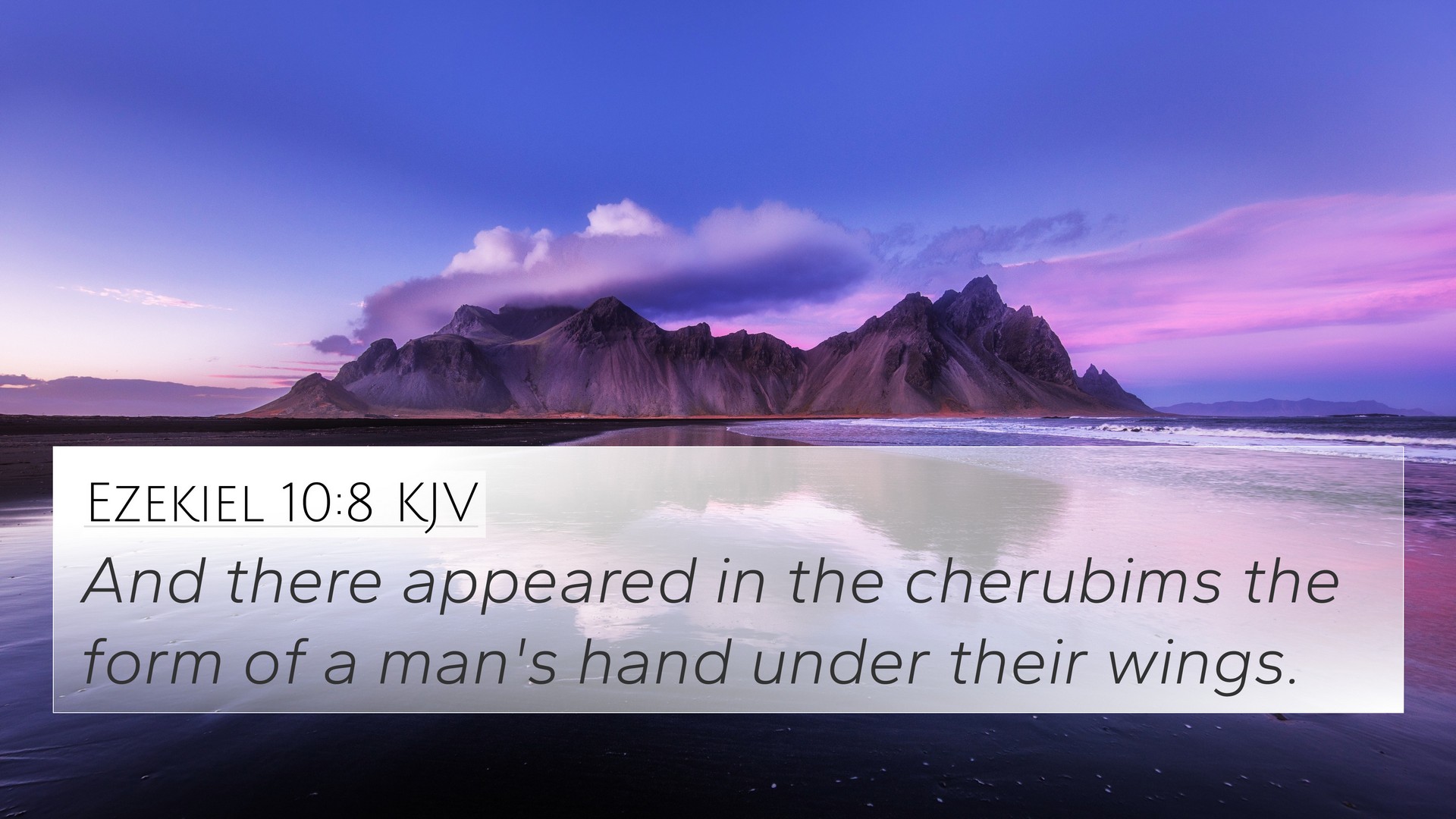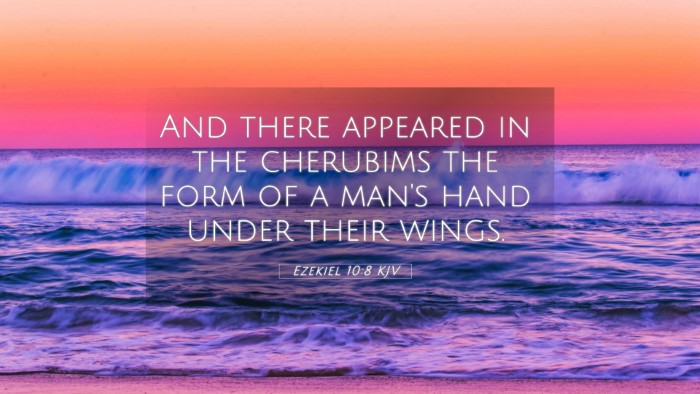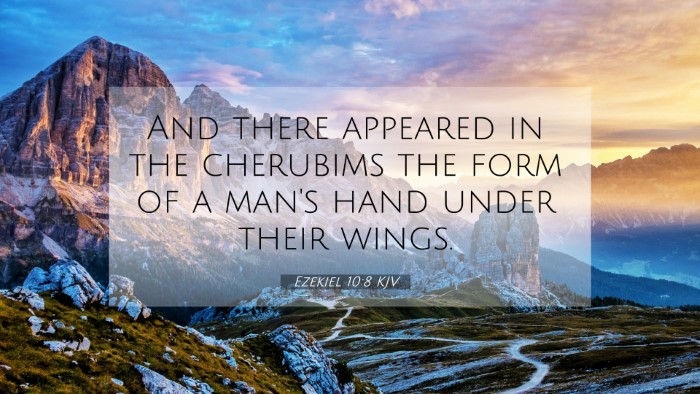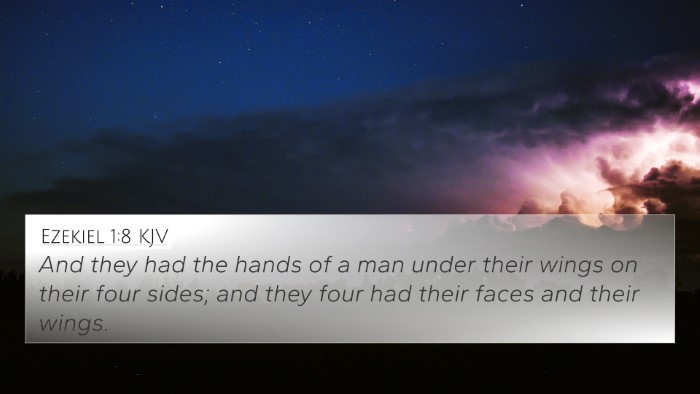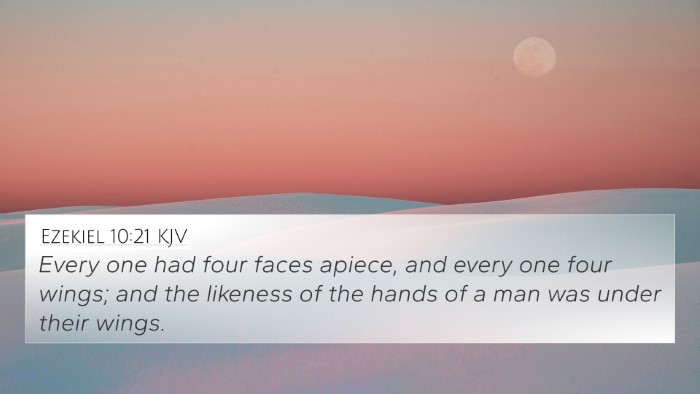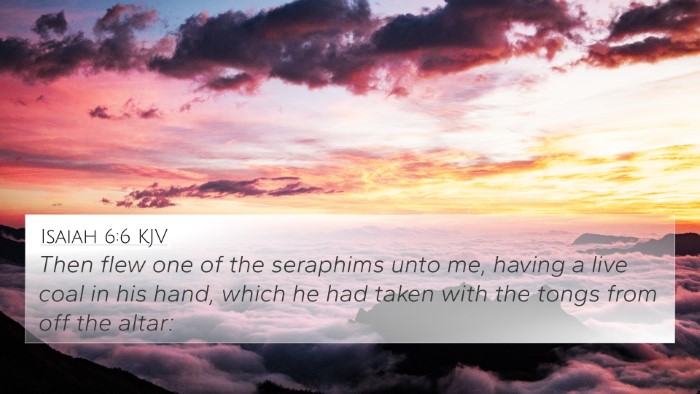Ezekiel 10:8 - In-Depth Commentary and Interpretation
Ezekiel 10:8 reads: "And there appeared in the cherubim the form of a man's hand under their wings." This verse presents a profound theological significance tied to the nature of God's glory and the instruments of His will.
Meaning and Significance
This verse is situated in a profound vision experienced by Ezekiel, where the cherubim serve as symbolic creatures that represent the divine presence and majesty of God. The mention of a "man's hand" signifies God’s active engagement with humanity.
-
Matthew Henry's Commentary:
Matthew Henry emphasizes the cherubim's role as guardians of the divine throne. The presence of a human hand signifies that although God is transcendent, He remains intimately involved in the affairs of men, demonstrating His willingness to reach out to humanity.
-
Albert Barnes' Notes:
Barnes interprets the hand emerging from the cherubim as an indication of God’s providence and power. The hand is a universal symbol of action, and in this context, it may represent the execution of God's judgments or mercies, thereby bridging the gap between divine will and human action.
-
Adam Clarke's Commentary:
Clarke notes that the visualization of the hand illustrates divine authority. The idea that it is located under the wings suggests protection and support, indicating that God's guidance envelops His covenant people even in times of distress.
Cross-References and Related Verses
To further understand the implications of Ezekiel 10:8, several cross-references may be explored:
- Genesis 3:24: Discusses cherubim guarding the way to the tree of life, establishing their role as guardians.
- Isaiah 6:2: Mentions seraphim instead of cherubim, but holds a similar role in the divine court, emphasizing God's holiness.
- Exodus 25:20: Describes the cherubim on the mercy seat, highlighting their significance in God's earthly throne and communion.
- Psalms 91:4: Reference to God's protection akin to feathers and wings, conveying God's sheltering nature which is exemplified through the imagery of cherubim.
- Revelation 4:6-8: Speaks of divine creatures in God's throne room, showing the continuity of these themes throughout scripture.
- Ezekiel 1:10: Earlier description of the cherubim, which provides context to their appearance and attributes.
- Hebrews 9:5: Reference to the mercy seat and cherubim, continuing the theme of divine presence and scriptural dialogue.
Thematic Connections
Analyzing Ezekiel 10:8 within the broader narrative of scripture helps to establish thematic connections:
-
Divine Presence: The hand under the wings points to God's presence in the midst of His people, reflective of the tabernacle's role in Israel's history.
-
Intercessory Role: The imagery symbolizes God's ability to act on behalf of humanity, reminiscent of the intercessory nature of Christ as depicted in the New Testament.
-
Theological Underpinnings: The relationship between the divine and human action shines through, creating a bridge that invites believers to engage with God actively.
Using Bible Cross-References Effectively
Utilizing tools for Bible cross-referencing can enhance understanding when studying verses like Ezekiel 10:8. Here are some methods:
- Bible Concordance: This tool allows for quick searching of terms and provides a list of related scriptures.
- Cross-Reference Guides: Using a systematic approach to identify verses that link thematically or contextually.
- Bible Study Software: Many applications and resources provide extensive cross-references for deeper study.
Conclusion
Ezekiel 10:8 serves not only as a reflection of God's intricate relationship with creation but also as a stimulus for theological exploration. Using cross-references allows for comparative analysis which enriches understanding, highlighting the interconnectedness of Biblical texts. Through the insights of commentaries by Matthew Henry, Albert Barnes, and Adam Clarke, we recognize the layers of meaning within the scriptures, inviting deeper contemplation of God's workings in the world.
